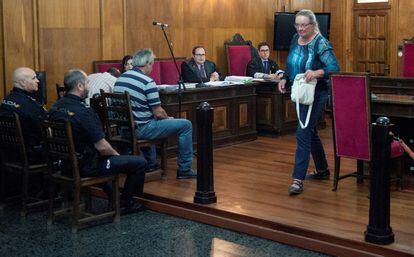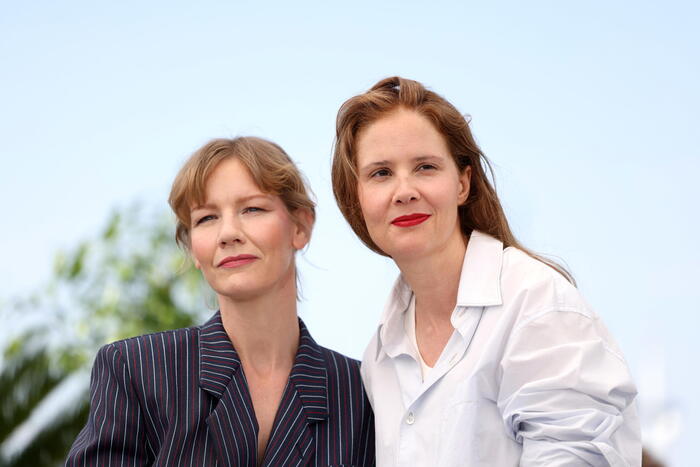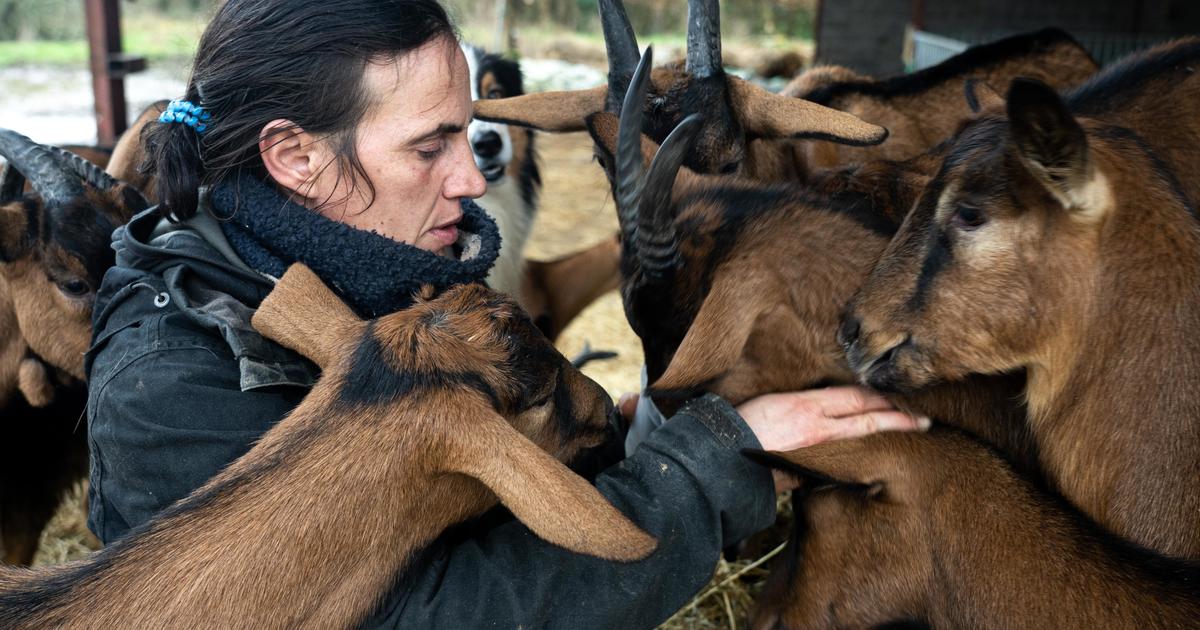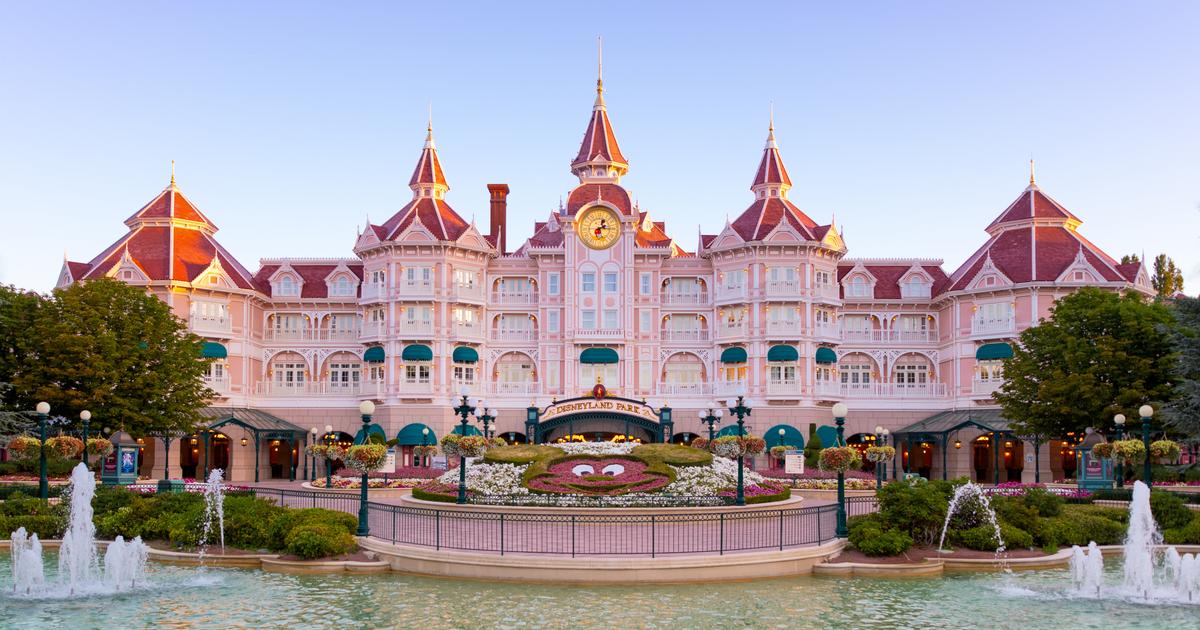Today
Coffee
was born , a good name for the early riser of the kids that are going to come into the world these holidays at the house of Margo Pool, the house with a turquoise blue balcony that overlooks the valley in the lower part of Santoalla do Monte (Petín, Ourense).
Coffee
, as its nickname indicates, has come into the world painted brown, and its birth has served for Rubén, a volunteer who has come to the village to learn and lend a hand to the Dutch with the cattle, see for the first time the birth of a goat.
More information
'As bestas': a lot of art in the portrait of violence and fear
This remote place, which in January 2010 was the scene of the true rural
thriller
that inspired Rodrigo Sorogoy in his film
As bestas,
is these days transformed into a maternity hospital, a sanctuary of renewal and life, with dozens of babies swallowing booster bottles from the hand of the widow of Martin Verfondern, the victim of the tragic event.
Margo, who is now 69 years old, cares for 40 adult goats, and from each one she expects “one or two” kids to be born.
In March, when she starts to have leftover milk, she will use the surplus to make cheese.
There are "a few every day," she says, but they are so well known that if someone wants to taste them, she must call to reserve: "Two months in advance, if they are ripe."
Margo Pool, to whom Sorogoyen's work is dedicated, was one of the first people to see the film that was crowned a few days ago at the Forqué awards and points to a great favorite for the Goyas.
French Marina Foïs brings him to life on screen.
She did not come down from her mountain to go to the cinema to see the film, but the director appeared at her house with the film under her arm.
There, in Santoalla do Monte —the depopulated, dark and lost town on the hillside, pulverized in rubble— the woman who moves with her lack of rancor, her peace and her strength to continue supporting the natural life project that she built with her husband saw
As bestas for the first time
.
Now, with that calm smile with which she receives the curious who, especially in summer, continue to visit the village where the winding road ends, she assures: "The film is fine."
But then she warns: "It's a fiction.
It doesn't tell my story.
Although it is based on me, they are other things, other names, another world”.
Margo Pool crosses paths with the two accused brothers (Juan Carlos and Julio, sitting before two police officers) at the Ourense Court, after finishing testifying during the second session of the trial for the death of Martin Verfondern, in June 2018.Brais Lorenzo (EFE)
However, he admits that when he goes down in his blue Dacia Duster to buy at the fair in A Rúa, one of the large towns in the Valdeorras region, people insist on telling him "you are the woman in the movie", despite that everyone there knows, first hand, the genuine story of the Dutchman who loved this land and died violently to defend his rights.
Virtually everything in the film evokes the real events that triggered Santoalla's crime and the subsequent concealment of Martin Verfondern's body under a pact of silence sealed by the native family, the Rodríguez.
Although the cosmopolitan couple who came to town to found a life in communion with nature was not of French origin and with a daughter, as in the film, but Dutch and without descendants.
In Santoalla there are only two habitable houses left: that of the Rodríguez, now closed, and the one that the Verfonderns bought to fix and live in at the end of the 1990s.
The rest are stone ruins, collapsed on the streets, of fifty homes that the other neighbors left behind when they left the village to emigrate to the valley, to the cities of Galicia, Madrid, Barcelona, Germany, Cuba.
They all had rights to the pastures and pine trees of the 355-hectare communal forest, although it is true that some three decades ago businessmen from the wind sector passed through the area looking for possible places to nail some 25 windmills to the top.
But Margo Pool assures that she "never" knew about it,
02:09
Trailer of the movie 'As bestas'
Denis Ménochet and Marina Foïs, in 'As bestas'.
That closure clouded relations more and more, with physical clashes, sabotage of the crops and thefts that the Dutchman denounced, while his partner tried to remain calm and placate the outraged husband.
Until in 2009 Verfondern felt the need to protect her life and her home.
He installed half a dozen cameras on his property, located at the opposite end of town from that of the enemy family, and he would tell anyone who would listen that he never went out on the road without always carrying another camera in his hand, always on, to be able to demonstrate the attacks on the Civil Guard and the court.
So much so, that before dying, Verfondern left the crime in which he lost his life solved.
With videos and testimonies, he pointed out who would pull the trigger: the weakest link of the opposing lineage.
But, with his corpse hidden from him,
More information
Marina Foïs: «Neither Sorogoyen nor I wanted to meet the real protagonist of 'As bestas'.
She was a matter of decency"
The Dutch sued for a long time in the courts, and obtained favorable sentences, but the rival family, basically made up of the already elderly parents and two sons, appealed the decisions because they preferred to continue as before the foreigners arrived: without sharing.
Hate caught fire in them in such a way that the youngest son, Juan Carlos, with a 65% mental disability, but owner of several firearms, "shot the Dutchman to please his father [Manuel,
O Gafas
] and his brother [Julio]”, settled the prosecutor in the case in the trial against the two sons of the Rodríguez family, held at the Court of Ourense in June 2018.
Secretary of the disputed mount
When Juan Carlos Rodríguez, sentenced to 10 and a half years in prison thanks to psychological mitigation, killed Verfondern as he entered Santoalla with his Chevrolet Blazer on January 19, 2010, the judicial confirmation of the victim's rights had just been issued.
Then, Julio, the brother, was in charge of driving the car of the
uncomfortable
foreign neighbor to a remote pine forest 18 kilometers away.
And there, on the snowy ground, were the vehicle, the deceased and the charred remains of his belongings until June 2014. At that time, the O Gafas clan monopolized all the positions of the communal entity: Manolo was the president;
Julio, the secretary;
and the disabled son held the position of treasurer.
Today, the patriarch and his wife, Jovita González, have already passed away;
Juan Carlos is serving prison (the Government denied him the pardon requested by the popular jury) and only Julio (free from the crime of concealment due to the exemption of kinship) continues to maintain a herd of beef cows in Santoalla that graze freely and peacefully among the goats. of colors by Margo Pool.
He is the president of the community of forests, and the neighbor —who in 1990 left her job as an office worker in Amsterdam and ended up choosing to live in this remote village— is the secretary.
As the only fixed inhabitant of the place, she is also the one who keeps the key to the church although, in the same drift of abandonment that followed the beautiful village, the temple threatens ruin.
“The roof is very, very bad;
any day it collapses”, laments Margo, “so the priest wants to close it permanently”.
Before, the person in charge of the keys was Jovita, the mother of the material author of the homicide.
But there have been no parishioners for several decades now, and the whitewashed chapel was only opened “in Corpus Christi and on the day of the patron saint”, Saint Eulalia de Mérida, the martyr who gives her name, in Galician, to Santoalla ( Santa Olalla).
Martin Verfondern, in September 2009, during a report for EL PAÍS four months before he died. PEDRO AGRELO
Margo never wanted to leave here and when the crime had not yet been solved, her serenity came to be misinterpreted by some, because she did not cry in public.
However, in the last session of the trial, when she finished everything, she left the room, leaned out of one of the windows that overlook a fountain at the foot of the Court, and began to cry without noise.
Inside him, still sitting on the bench, Juan Carlos was also sobbing, with his head buried in his arms.
"If I left, they would win the war for which Martin died," Santoalla's neighbor has repeated many times since the man who ended up being convicted broke the clan's silence and confessed at the end of 2014.
With her bare hands, the woman dug the hole in which she buried the box that the coroner gave her.
Inside it was the handful of bones of her husband that the wolves left, as leftovers, on the lonely mountain of As Touzas da Azoreira (A Veiga, Ourense).
Martin's family in Germany (he had naturalized Dutch to avoid military service) then planned to cremate the remains and distribute the ashes between his native country, the Netherlands and Petín, but today what was left of the victim is still buried in the tiny cemetery located at the gates of the village.
When he already feared for his life, the husband told Margo that he would like to be remembered forever with a motto: "Here Martin grows, the Dutchman from Petín."
She writes that phrase every day working in their garden, giving a name to every animal that is born, refusing to leave,






/cloudfront-eu-central-1.images.arcpublishing.com/prisa/FRRPN7R2YZCJHETY5IKUE3PJCY.jpg)
/cloudfront-eu-central-1.images.arcpublishing.com/prisa/FRRPN7R2YZCJHETY5IKUE3PJCY.jpg)
